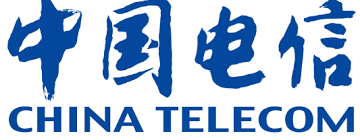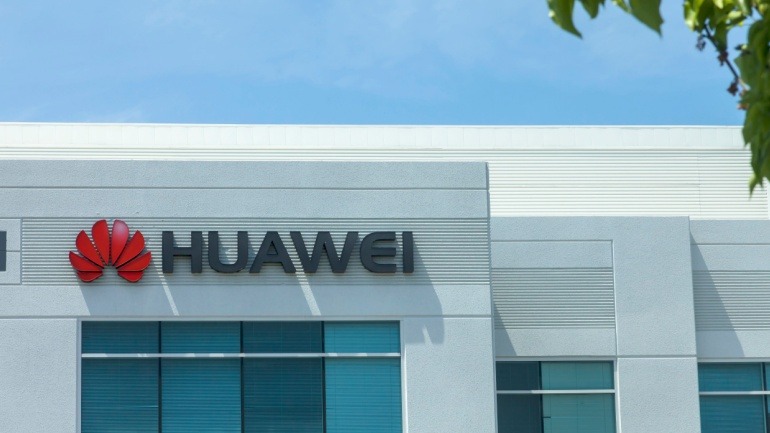China Mobile and Ericsson have announced the launch of two energy-efficient 5G sites in China as part of their efforts to conserve energy and reduce carbon emissions. The Ericsson Smart Site offers new levels of quality assurance, the intelligent administration of various energy sources, full-stack real-time monitoring, and intelligent energy and service synergy. The initial facility, located in Jiangsu Province, runs on the 700MHz frequency and emits no carbon dioxide. The second facility, in Guangdong, operates on the 2.6GHz frequency. Both locations employ Ericsson’s power system, which optimizes the usage of energy from solar, grid and battery sources to provide the most energy-efficient operation possible. The systems also include remote management capabilities using Ericsson Network Manager. Energy conservation and renewable energy have become major technology trends in China. As China continues to prioritize energy conservation and carbon emission reduction, the partnership between China Mobile and Ericsson is well-positioned…
China Mobile, one of the largest state-owned telecommunications companies in that country, has designed a water purifying device powered by blockchain, thus making an explicit statement that blockchain technology is not something extraneous and out of this world, but is a beneficial high-tech solution that may be advantageously applied to ordinary household appliances. The Product Market Director at China Mobile IoT, Xiao Yi, stated: “Our goal is to also attract those who are not in the cryptocurrency or blockchain community, who may have heard of this technology but not necessarily understand it. To embrace a more mainstream adoption, we need to turn something that appears professional into something that’s very ordinary.” The Internet of Things (IoT) division within the company has developed a product with a built-in computing chip and an IoT module. This innovative gadget collects applicable user data related to consumer behaviour habits and shares it…
According to a recent report from The Intercept, Google is planning to relaunch its search engine in China, meeting all the Chinese government’s censorship requirements. Back in 2010, the Internet giant withdrew its services from China due to strict censorship. Now Google is clawing its way back into the world’s largest Internet market, with a censored version of their search engine under the codename “Dragonfly”. The first platform to be developed is an Android app that is expected to be finalized in the upcoming six to nine months, claims The Intercept. The appeal of 750 million Internet users would be quite tempting to anyone, yet this news about Google has been met with some negativity, and may be considered as showing support for the totalitarian regime in China. “This has very serious implications not just for China, but for all of us, for freedom of information and Internet freedom. It…
At the recent Sino-German Economic Forum, China Mobile and Nokia signed a one year framework agreement valued at 1.36 billion euro (9.927 billion yuan) to support the Chinese operator’s transition to 5G infrastructure, while maintaining seamless connectivity. Under this agreement, the Finnish corporation will be providing the Chinese telecom with cutting edge end-to-end technologies for the next generation network, in addition to mobile, fixed, IP routing, optical transport and customer experience management technologies along with their service expertise and support. The two companies have been in partnership since 1994, when Nokia supported the first GSM call on China Mobile’s network. In addition to collaborating on 5G, both companies are moving forward together and have agreed to conduct research and tests on artificial intelligence and machine learning. “This is a highly significant agreement with our longstanding partner that consolidates Nokia’s position as a leading provider of next-generation technologies and services in…
Apple recently sent a message to all developers of apps on iOS that are available on the Chinese App Store. They informed them that they had to remove a tool called Callkit, that allows to implement VoIP calls into their app. Any app that uses Callkit is refused by apple for the Chinese market. The message stated: “Recently, the Chinese Ministry of Industry and Information Technology (MIIT) requested that CallKit functionality be deactivated in all apps available on the China App Store.” Despite this announcement, VoIP is still allowed in China, but the ease of use of Callkit seems to be the issue. Some Human Rights activists suggest that even though China doesn’t want to officially ban VoIP, they want to make it more difficult to use. It is not the first time Apple had to comply with Chinese demands as they removed last year Microsoft’s Skype among other VoIP…
A worldwide partnership between CTG (China Telecom Global) and Global Switch was made official. It will allow the two companies to offer Data Centre Network solutions to customers globally. Global Switch already operates, develops and owns carrier and cloud-neutral data centres, that are located in Europe, and the Asia Pacific area. As a part of its services, it provides IEPL (international ethernet private lines), IPLC (international private leased circuits), VPN and IP transit. Deng Xiaofeng, CEO of CTG, expressed his satisfaction : “The collaboration will bring significant value-adds to our existing and future customers, fuelling their development and success with resilient and mission critical data centre network infrastructure.” John Corcoran, CEO of Global Switch, added: “This agreement with China Telecom Global is recognition of Global Switch’s continued commitment to providing customers with industry-leading facilities and solutions across our global portfolio. This initiative will further enhance access to our extensive connectivity…
CTG (China Telecom Global) and Liquid Telecom (a pan-African telecom company) signed a deal to collaborate in the development of network solutions and services. In Johannesburg, Liquid Telecom’s headquarter held the signing ceremony between the Chinese and the African companies. Senior Representatives from China Telecom Donald Tan and Changhai Liu, and Liquid Telecoms CEO Nic Rudnick, and Chief Business Development officer Willem Marais, were present for this event. The two companies will be able to provide to their customers an extended coverage on those two parts of the world. “With more than 50 countries in the region, Africa is nonetheless the booming new market with the highest development rate just after Asia, and a very important market for CTG.” said Changhai Liu. As the Managing Director of China Telecom (Africa and Middle East) he also added, “This collaboration will enable both CTG and Liquid Telecom better serve our customers and…
China Telecom (China Telecommunication Corporation) and HGC (formerly Hutchinson Global Communication) will be working together in building a carrier-to-carrier fiber optic connection on the Hong Kong-Zhuhai-Macau Bridge. HGC, founded in 1992 under British ruling, is the leader in fixed-line operators. It also has an extensive number of infrastructures outside of Hong Kong. It is also one of Hong Kong’s main Wi-Fi provider with 29,000 hotspots. It is now owned by I Square Capital, under Asia Cube Global’s infrastructure. On the other hand, China Telecom is the most important state-owned telecommunication company in China. It manages the third largest broadband network in the world. Their internet offers has 160 million subscribers, and the customers’ number of their mobile service is 260 million. This Bridge connects Zhuhai, up north Macau, Macau itself and Hong Kong. It is set to open for vehicles on July 1rst 2018. It will also be used for…
Dublin, Ireland / Xiamen, China – December 2, 2025 – Yeastar, a leading provider of Unified Communications (UC) solutions, has teamed up with DIDWW, a global telecom provider specializing in virtual phone numbers and two-way SIP trunking services. As a newly certified ITSP partner within the Yeastar ecosystem, DIDWW will deliver high-quality voice services and an extensive portfolio of DID numbers, enabling Yeastar customers to benefit from reliable PSTN connectivity and expanded international reach. Through this partnership with DIDWW, Yeastar UC platform users will gain access to scalable and compliant global communication services, with virtual numbers spanning key markets such as France, Germany, Spain, Singapore and Thailand. DIDWW’s advanced SIP trunking solution offers high-capacity capabilities, providing crystal-clear voice quality, robust security, and full regulatory compliance. Designed to handle high voice traffic demands, this solution ensures reliable and seamless connectivity for businesses of any size. Arya Zhou, Head of Global Sales at Yeastar,…
Vietnam’s recent decision to award 5G contracts to Huawei and ZTE signals a crucial transformation in its telecommunications strategy, impacting its VoIP infrastructure. This transition highlights Vietnam’s complex balancing act between global powers, as it embraces Chinese 5G technology despite longstanding Western security concerns. Exploring Vietnam’s evolving VoIP dynamics amid geopolitical shifts offers insight into future telecom trends, emphasizing cost-effectiveness and advanced connectivity.













